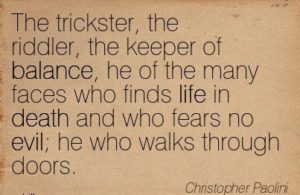Howard Zinn once said, “…to live now as we think human beings should live, in defiance of all that is bad around us, is itself a marvelous victory.” One experimental feature of Fools Mission is our reliance on friendship and community as an alternative to building “caseloads.” In a culture that is retreating into silos based on social class—where even faith congregations rarely provide opportunities to meet people from different social classes whose life experiences are radically different from our own—we intentionally cross boundaries of identity and social status in response to an accelerating decline in our collective capacity for empathy. We are building a non-denominational community of fools where social connections make it obvious when there is a human need that needs to be addressed.

Recognizing that charities organized along the “provider/client” model are indispensable in a consumer-driven economy based on debt, we want to try a different approach. While we work in partnership with many non-profit charities to help people cut red tape, connect with public assistance, and access medical care and legal services, our mission is to reduce the role of “power over” relationships in people’s lives. No one has to pass a test or meet eligibility requirements to qualify for our programs. Instead, human relationships drive our decisions to volunteer for accompaniment, education, or arts activities. Read Testimonies to learn more about how Fools Mission raises the consciousness of middle-class citizens.
When one party to a relationship has all the power to decide the nature of the assistance to be provided; the time, place, and amount of the assistance; and whether the other party qualifies to receive it; there is a built-in power differential that we find to be inherently dehumanizing. Our relational approach to ministry foreshadows a world that doesn’t yet exist—a world of interbeing rather than isolation and separation, where we include people from different socioeconomic classes in our social networks, domination and violence are unnecessary, and dehumanizing power relationships aren’t required.
Theologian, educator, and civil rights leader Howard Thurman put it this way:
“I am always glad for the way in which
organizations, structures, hierarchies, combines, devote their energies to the salvaging of the common life—to make life easier, simpler, and more beautiful for the destitute and the so-called under-privileged. I applaud them and I think that is a way that is very important, and I do not wish to exclude it… I just wish I knew, really knew, how to administer to a human need without putting my contaminated fingers into the quiet recesses of [that person’s] private dignity. If we could do that with large-scale operations, then the outer and the inner would become one.”
This quest for a more expansive sense of self that includes both personal and social responsibility is what motivates fools like us to embrace a life of service.
